#cafe
FCA Paid $77 Million in Civil Penalties to Sell Cars People Actually Want to Buy
Fiat Chrysler Automobiles paid $77 million in U.S. civil penalties late last year due to its failure to adhere to 2016 model year fuel economy requirements. In December, the National Highway Traffic Safety Administration (NHTSA) issued a report claiming the industry faced millions in fines from 2016 and that one manufacturer was expected to pay significant civil penalties.
You can probably guess which one. But FCA is by no means the only automaker affected by stringent fuel rulings.
Trump Officially Nominates Andrew Wheeler to Head the EPA
President Donald Trump nominated Andrew Wheeler as administrator of the Environmental Protection Agency on Wednesday, setting him up to permanently fill a position he’s already occupied since July.
Trump praised Wheeler in November his “fantastic job” as acting administrator of the EPA following the July 2018 resignation of the agency’s former scandal-ridden head, Scott Pruitt. This month, the president submitted Wheeler’s formal nomination to the Senate. There’s still a ways to go before the ex-lobbyist’s confirmation, though, as the Senate will no doubt be critical of his relatively recent ties to the coal industry.
GM: Current Fuel Economy Rules 'Not Technologically Feasible'
General Motors appeared to endorse the Trump administration’s fuel economy rollback, at least to some degree. In a federal filing made public on Monday, the largest U.S. automaker said Obama-era rules that targeted fleetwide fuel efficiency in excess of 50 miles per gallon by 2025 were “not technologically feasible or economically practicable.”
Interesting, considering GM CEO Mary Barra recently called for for the adoption of a national zero-emission vehicle strategy. However, the document also had GM saying it was “troubled” that the current administration appears so keen to abandon federal incentives on electric vehicles after the 2021 model year.
California Preps Formal Response in Gas War, Calls MPG Rollback 'Unlawful'
California and 18 other states plan to formally vent their grievances over the Trump administration’s proposal to freeze fuel economy standards at 2020 levels on Friday. The Environmental Protection Agency (EPA) and National Highway Traffic Safety Administration (NHTSA) have called for public comments on the matter, with the deadline taking place at the end of this week. Apparently, California wants its voice to be the last one heard.
“They are grossly derelict in not trying to move the dial forward in cleaning the air and the environment,” California’s attorney general Xavier Becerra said in a conference call with reporters on Wednesday. “The situation continues to get worse and requires action now, and not for us to stand pat.”
California Prepares Counteroffensive in Great American Gas War, Asks Automakers For Ammo
California is considering a formal, public counter-proposal to the Trump administration’s proposed rollback of the existing fuel economy requirements for passenger vehicles. Gearing up for the launch, the state has requested that automakers present detailed information on their future products and explain why they’re seeking relief from fueling mandates they previously agreed to adhere to.
“They’ve never submitted to us any information that would back up those claims in any detail to help us craft a solution,” Mary Nichols, chair of the California Air Resources Board, (CARB), said in a Thursday interview with Bloomberg.
California Vows to Work Toward National Emissions Standard (While Voting to Keep Its Own)
California regulators voted on Friday to mandate an adherence to Obama-era federal vehicle emissions standards for cars sold in the state, regardless of Trump administration efforts to weaken the standards. It’s the latest salvo in a war between the Golden State and the current administration, which aims to strip California of its ability to self regulate its automotive emission rules and roll back the corporate average fuel economy for the entire country.
However, the Trump team doesn’t appear to be completely ignoring the environment. In a 500-page environmental impact statement from the NHTSA on the Safer Affordable Fuel-Efficient (SAFE) Vehicles Rule for Model Year 2021–2026, numerous inclusions acknowledge the existence of climate change. But the takeaway from the report is that the NHTSA doesn’t seem to feel that passenger vehicles will make much of a difference.
White House and California Still Discussing Emission Rules, Incredibly
Considering that the Trump administration’s Safer and Affordable Fuel Efficient (SAFE) Vehicles proposal specifically calls for the revocation of California’s power to set its own emissions rules, it’s miraculous that the Golden State is still willing to discuss the issue. But here we are.
Administration officials and members of the California Air Resources Board (CARB) emerged from a meeting on Wednesday, saying they were working toward resolving their differences over vehicle emissions, interested in establishing a single national standard, and — get this — would be happy to meet again.
Fueling the Opposition: EPA Staff Had Serious Reservations About CAFE Rollback Proposal
Staff at the Environmental Protection Agency had major disagreements over the decision to rollback corporate average fuel economy (CAFE) standards for the coming years, according to documents released last week. The matter echoes an event in May where science advisers for the EPA claimed the agency had ignored its own research in order to rationalize the push to relax fuel targets.
Both items have given ammunition to critics of the new proposal to claim the choice was politically motivated and based upon shoddy, biased research. Interesting, considering that’s exactly what the current administration said about the earlier decision to make them more stringent.
Led by the National Highway Traffic Safety Administration and backed by EPA, the current proposal seeks to keep fuel economy standards at 2020 levels — rather than continuing to elevate them. The arguments made for the move revolved around existing consumer preferences and saving lives. However, some of the agency’s staff seemed to be concerned with the NHTSA’s data and claimed it had overstepped by including the EPA in documents it didn’t approve of.
Will the Fuel Efficiency Rollback Help Employment?
President Donald Trump was obsessed with U.S. employment long before being sworn in as Commander-in-chief. In fact, the jobs rhetoric played a major role in swaying traditionally democratic voters in states like Michigan. The promise of manufacturing positions, the kind of work American used to be known for, was too tempting for some living in the Rust Belt to ignore.
“We’re going to work on the CAFE standards so you can make cars in America again,” he told Detroit’s auto workers in March 2017, referencing the Corporate Average Fuel Economy. “We’re going to help the companies, and they’re going to help you.”
Those fuel economy rollbacks are now fast approaching, after the National Highway Traffic Safety Administration and Environmental Protection Agency released their official proposal last week. But will it truly help bolster employment rates in the United States? The answer depends largely upon who you ask.
Let's Not Forget Where the Fuel Economy Rollback Leaves Oil Companies
The Trump administration’s ongoing endeavor to replace existing fuel economy mandates with something easier on automakers is a hot topic, but the issue has more angles than a rhombicosidodecahedron. One that took a backseat during much of our coverage is where the oil industry fits into all of this. We figured it was pretty obvious because, every time we heard the word “rollback,” our minds automatically added the cash register sound effect.
Car manufacturers aggressively lobbied for more lax corporate average fuel economy (CAFE) standards since Donald Trump took office. But so has the oil industry; it just wasn’t doing so quite as openly. So what exactly does the federal government’s fuel economy rollback mean for Big Oil? Don’t act as if you didn’t already know.
Cha-ching.
EPA and NHTSA Officially Release Fuel Economy Plan, California Decidedly Pissed
After months of discussion, circulating drafts, and arguing with the State of California, the Environmental Protection Agency and National Highway Traffic Safety Administration formally unveiled their plan to rewrite the existing corporate average fuel economy (CAFE) rules and replace them with something far less stringent.
The proposal would freeze the presiding standards in 2020 under the “Safer Affordable Fuel-Efficient (SAFE) Vehicles Rule for Model Years 2021-2026 Passenger Cars and Light Trucks” plan, which is a mouthful.
It also moves to revoke California’s authority to set its own mandates, as predicted. The Golden State made it clear that it wants to maintain the Obama-era limits. However, the proposal includes a section emphasizing the importance of a single national standard, saying it would seek to withdraw the waiver granted to California in 2013.
“Attempting to solve climate change, even in part, through the Section 209 waiver provision is fundamentally different from that section’s original purpose of addressing smog-related air quality problems,” reads the proposal. “When California was merely trying to solve its air quality issues, there was a relatively-straightforward technology solution to the problems, implementation of which did not affect how consumers lived and drove.”
States' Rights: EPA Seeks '50-State Solution' for Fuel Rules, California Happy to Settle for 16
Andrew Wheeler, the acting head of the Environmental Protection Agency, said the United States needs a single standard for fuel efficiency for cars and trucks on Tuesday. It’s a sentiment shared by Mary Nichols, head of California Air Resources Board, but it’s likely to put the two at odds. Wheeler said the pair shared that singular goal based off a meeting held last week, but California isn’t seeking the same benchmarks as the current administration.
The state objects to the EPA’s plan to weaken Obama-era efficiency targets, and is currently in the midst of a political and legal battle with the agency. However, Wheeler confirmed that, under his watch, the group would continue seeking a “50-state solution.”
Replacement EPA Boss on Board With California Gas Confab
Following Andrew Wheeler’s appointment as acting head of the Environmental Protection Agency, he extended an invitation to the California Air Resources Board to discuss emission regulations — a matter which former EPA administrator Scott Pruitt seemed less inclined to discuss with the state.
Mary Nichols, chairman of the board, said Wheeler reached out to state officials and the pair agreed to hold a meeting in Washington. It’s a slight easing of tensions in the cold war between D.C. and Sacramento.
Endless Pressure and Public Scandal Leads to Pruitt's Resignation as EPA Head
Environmental Protection Agency Administrator Scott Pruitt, who spearheaded the Trump administration’s initiative to roll back Obama-era fuel economy standards for light vehicles, has resigned. Even after assuming the position, Pruitt remained a tough sell as head of the EPA. His stance on climate change was uncharacteristic of any modern-day environmentalist and he seemed utterly bent on corporate deregulation to bolster profits and stimulate the economy.
Then came a flurry of scandals stemming from frivolous spending habits, improper use of authority, and possible business ties that would inhibit his ability to act in an unbiased manner. Numerous federal investigations were launched into these matters.
While a number of the impropriety claims came from political opponents actively hunting for gaps in his armor, let’s face it, Pruitt hasn’t been making things particularly difficult for them.
Blue Oval Vs Big Green: Environmental Ad Campaign Lays Into Ford … Again
The builder of the world’s best-selling vehicle, which just happens to be a large truck, finds itself in the crosshairs of yet another environmental ad campaign. Like past campaigns against the automaker, the coalition of four leading environmental groups claim Ford’s commitment to the environment pales in comparison to its thirst for profits.
Oh, and Ford Motor Company might as well change the name on its logo to “Trump.”
That’s what readers of The Detroit News and Detroit Free Press read on Saturday morning, after the Sierra Club (which is not a British Ford fan group, to be clear), Greenpeace, Safe Climate Campaign, and Public Citizen ran giant ads in both newspapers slamming the automaker for backing the Trump administration’s planned rollback of fuel economy standards.
Whoa, whoa, whoa, take it easy, Ford responded.






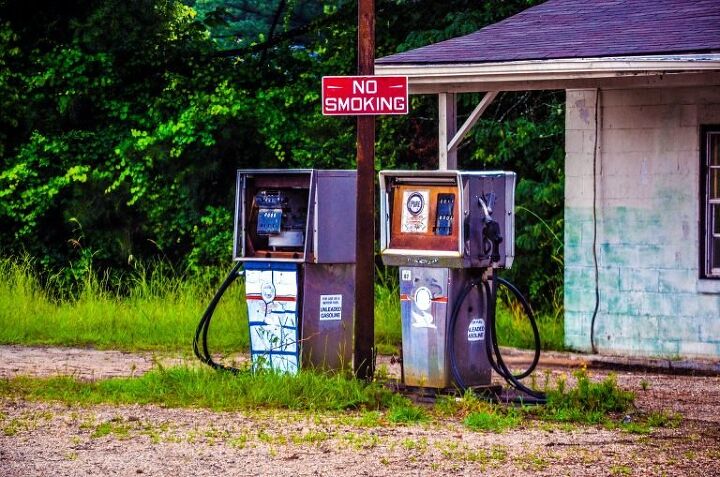




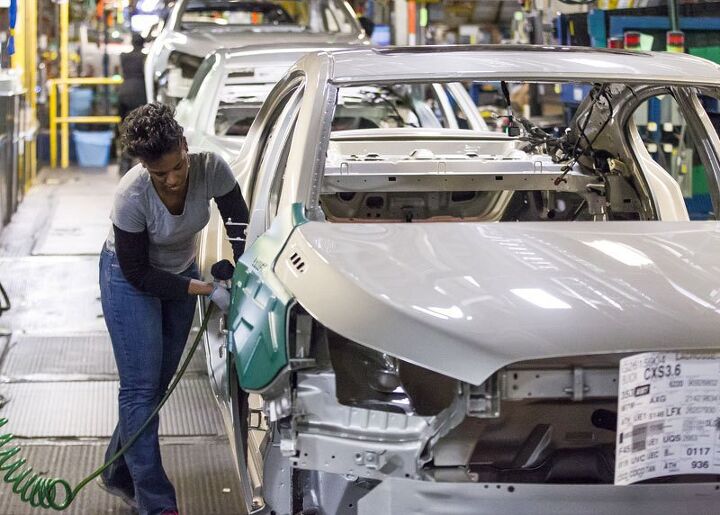
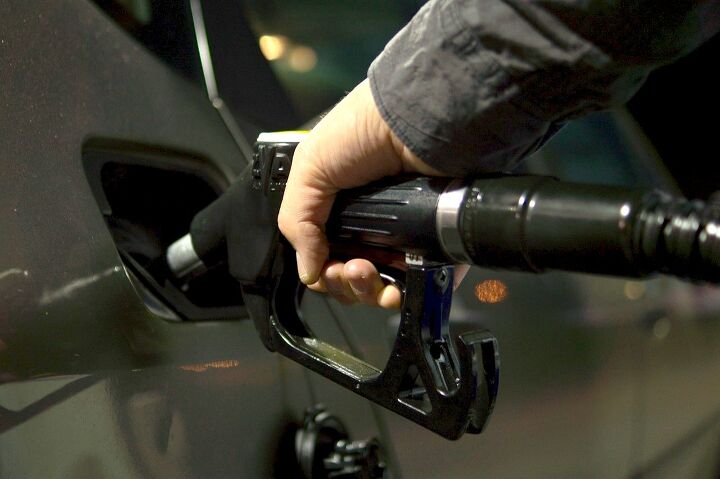


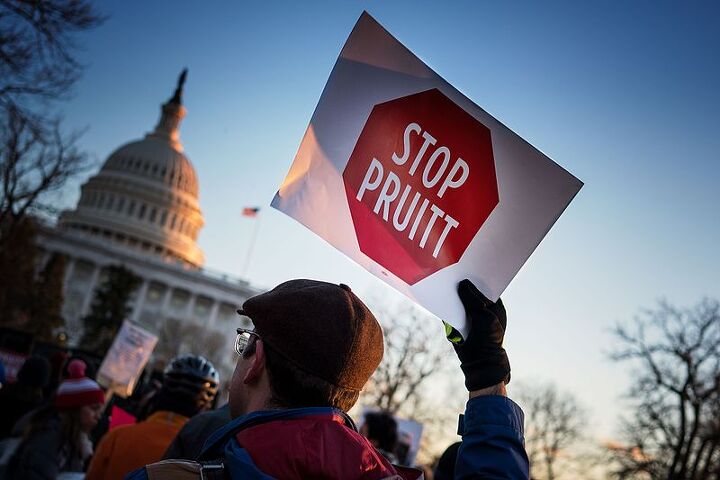
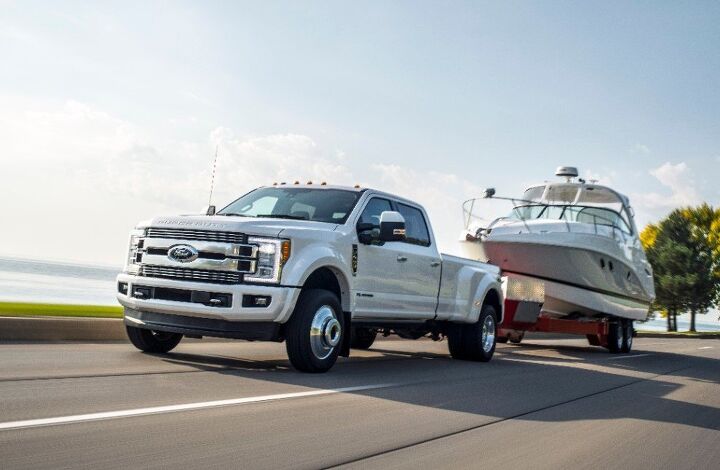












Recent Comments